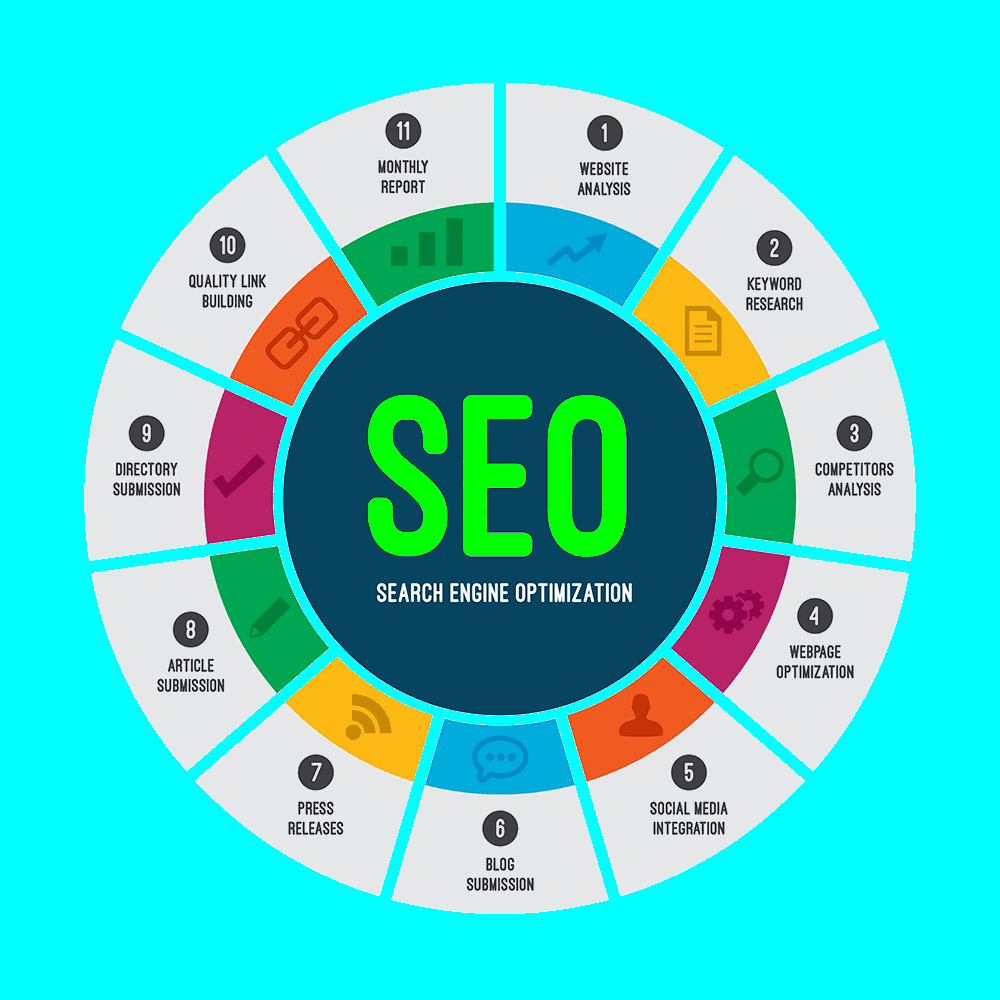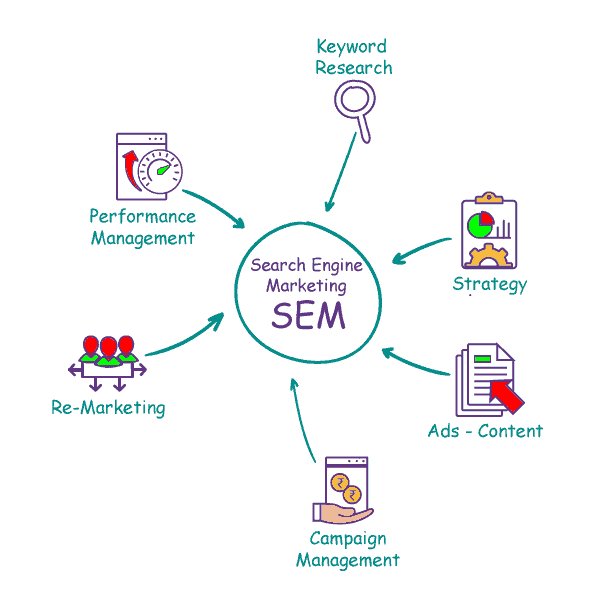What Is SEO, SEM, & SMM?
Search Engine Optimization (SEO), Search Engine Marketing (SEM), and Social Media Marketing (SMM) are digital marketing strategies. For example, the goal of SEO is to attract more customers to your website. When potential customers use Google, Bing, or Yahoo to search for businesses in your field, you want your website ranked first. SEM includes SEO and Pay-Per-Click (PPC). PPC drives more traffic to your website. Finally, SMM is growing like social media. SMM includes Facebook, Instagram, and Twitter paid ads and content creation. SEO, SEM, and SMM working together typically yield the best results. The allocation of resources will vary depending on your business goals.
How Does SEO Help My Business?
Today SEO is about providing value. SEO typically increases traffic which results in more sales. For instance, organic search results often translates to new customers. Google is the most popular website in the world, and most likely where your customers will find you. We know SEO impacts the buying cycle. You can optimize in local areas, for special deals, and use hot keywords. As a result, your business gains a competitive edge against your rivals.

Moreover, SEO builds trust. A strong SEO rank means you have an efficient and effective customer experience. Building trust nowadays is more important than ever. Say the right words to your customers in a way that is clear and concise. Have meaningful visuals to support the content on your website. The layout and structure is crucial to your SEO rank.
Most importantly, SEO is an investment in your future. SEO is an ongoing process, due to the search algorithms constantly changing. However, SEO has the highest ROI when compared to other marketing channels. This cost effective solution engages with customers once they’ve taken action and gone to Google. When they search for your product or service you must be found. Make your customers life easier. Give them what they are looking for.
SEO Summary
- Increase Website Traffic
- Expand Market Reach
- Impact Buying Cycle
- Build Trust
- Trade Information
- Invest In The Future
- Best ROI
What Is SEM?
Search Engine Marketing (SEM) is one of the most effective ways to grow your business. For instance, Google estimates there are over 3.5 billion search queries per day. As a result, it is crucial to advertise on these platforms. So what is SEM? Search Engine Marketing is paid advertisements that appear on Search Engine Results Pages (SERPs). To clarify, Google is a great advertising platform. People are constantly looking for the best products and services in their area. Google is the most common tool to find answers. You pay Google to display your business at the very top of the results page. In short, this makes your business easier to find.
How Does SEM Work?
SEM is simple in theory. First, advertisers bid on keywords. Choosing the right keywords can get your ads in front of the right customers. The Google Keyword Planner is a great tool to get some insights. It is important to mention keywords vary in price. Hot topic keywords cost extra money. For example, if you’re in an industry with high customer lifetime values you will pay extra money for ads. This is because your clients provide more value.

Second, your ads are displayed on search result pages. Good ads are short and concise. Moreover, they summarize your services using the identified keywords picked out in the first step. If your business sells products, you might want to consider Product Listing Advertisements (PLAs). PLAs are more visual. Product advertisements show customers important information such as images, prices, and reviews.
Finally, you Pay-Per-Click (PPC) when you run SEM. You only pay when someone clicks your ads. Search Engine Marketing offers the opportunity to put ads in front of motivated customers. As mentioned earlier, people on Google are looking for answers. If you can convince people you have the best services and products, they’ve found their answers and are ready to make a purchase. No other advertising medium can do this. This is why Search Engine Marketing is so effective. In conclusion, you advertise on a platform that already attracts customers.
SEM Summary
- Research The Market
- Find Hot Keywords
- Keep Ads Short & Concise
- Pay-Per-Click (PPC)
- Analyze Ads
Why IS SMM Important?
Social Media Marketing (SMM) is very important for brand promotion, targeting audience growth, driving website traffic, content creation, and increasing sales. In short, SMM is the easiest way to reach a massive audience. There is an estimated 3.9 billion social media users. Furthermore, this number is consistently growing. For example, since 2019 the social media platforms have grown 9.2%.
According to Vancouver based Hootsuite, over 52% of brands are discovered through social media. In other words, a majority of people learn about new brands on social media. Not only is it a great way to reach new people, it’s also an excellent source to connect with your existing audience. On average, people spend over 2 hours on social media everyday. This makes it a great resource to share information. Your new and existing customers are already on these platforms. You need to stay connected with them.
In addition to brand promotion, SMM is a great way to target your audience growth. It is easy to track analytics on your social media platforms. It is much harder to understand the data and provide meaning. Engagement, reach, audience, and conversions all have importance when trying to understand how to improve your Social Media Marketing campaigns. Data is only valuable when it provides you with answers. You can make decisions that will increase your company’s value when you understand these metrics.
Most importantly, the purpose of SMM is to increase your website traffic and sales. SMM is an investment in which you should see a healthy return. By using social media platforms you can promote your brand, target your audience, and create beautiful content. All of this working fluidly together should increase your website traffic and sales.
SMM Summary
- Promote Your Brand
- Expand Market Reach
- Create Meaningful Content
- Target Your Audience
- Drive Website Traffic
- Increase Sales
